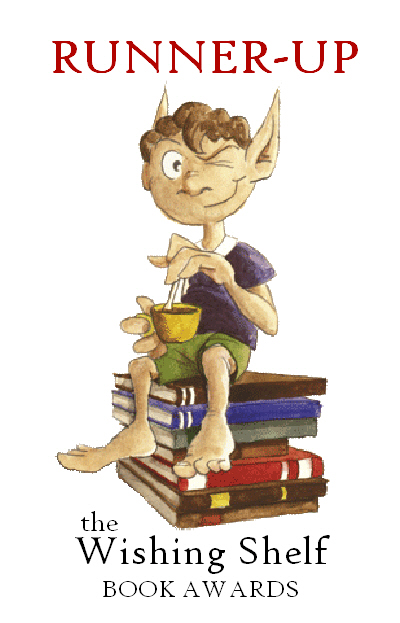I’m not here this week, I am going to post to my blog and give a talk at the same time. Sadly this is through the wonders of modern technology and not because I have a clone but there we go, you can’t win ’em all. So without more ado, here’s a piece outlining my theories about pimping your world to add realism to your writing. At the risk of sounding a bit waffly …
_______________________________________________
Pimp your world!
Real life can feel like an unwelcome and endlessly demanding interruption to your writing happiness.
However, it doesn’t have to be like this. The mundanity of your reality depends on how you see it. Even if you write science fiction or something that is very much not real life, observing what is going on around you can bring you huge dividends if you can put the right spin on it for yourself.

This is an owl; in flight, even though it looks like some kind of ball. Yes. Real life can often be quite weird enough – without the help of a writer.
How does this work?
Embrace the mundanity, be interested in everything, because it’s the sense of natural curiosity that will give you answers to the odd but boring questions of life. And knowing those boring answers will give your writing texture and make it real. Sure, nobody wants to know what that broken bent thing at the back of the drawer is but as a writer, you do because you never know when you’re going to discover a use for it in your books.
Exercise your writing muscles when you’re not writing.
No I don’t mean your hands! I mean this; if you have to do some mundane chore when you’d rather be writing why no approach it a different way? For example, if you have to go shopping, maybe try to see the dreary trek to Tesco’s as if you are making it for the first time, narrate your progress in your head, as if you’re writing a book.
You can make your approach to this exercise range from lateral to literal, for example, your first thought might be, ‘Why am I pretending it’s the first time I’ve ever been to Tesco if I’ve lived here all my life?’
From there you could go on to ask why the character in your head is only visiting now if they’ve lived here forever. Why, how and where have they been shopping in the years leading up to today? What does the sudden need to visit Tesco’s signify? What changed that put them there?
Alternatively, you can take a different approach and narrate your progress without really thinking of the whys and wherefores but simply as if it’s a scene in a novel. Think about whether the ‘you’ in your narrative is sad, happy, bored or something else. If they are, why might be the cause? How could you show it?
For example, if they see a thistle growing between the cracks in the pavement would their mood effect it. EG flowers, spring, lovely. Flowers, funerals death horror. Thistle, prickly and difficult.
Would they notice different aspects of their surroundings in different moods and interpret them differently?If you have access to MP3s on the hoof you could pop on a pair of headphones and see if different types of music inspire different scenarios. Would up beat songs make your character skip happily over the tarmac? Do sad songs make them drag their feet etc.
The point is, if you are thinking this way, it can only help you to develop your writing voice and style at times in the day when you aren’t able to do any writing.
Engaging with your surroundings brings rewards.
Yep, as much as you can, even when it seems as if there isn’t any point. First; you never know what you might see second, if you want to get interesting stuff out of your head, you have to put things in; experiences, ideas, knowledge and you have to be open to them when they occur – which is often when you least expect it.
Terry Pratchett talking about books said:
You don’t know what’s going to be interesting until you’ve read it. Somewhere in a book on the history of false teeth there’ll be the making of a novel.
He’s spot on.
Seek out the small details going on around you.
The other day, as my son and I were driving along, a middle aged woman passed us on her mountain bike coming the other way doing a huge wheelie. She, and we, were going under the A14, in different directions, her on the cycle path, us on the road. As she landed, having wheelied all the way under the bridge she pumped one fist in the air. My son and I didn’t have time to hoot, wave or give her the thumbs up before she was gone but that experience had both of us thinking. We spent the rest of the journey making up a story about her. We are probably the only people that noticed what she did.
Another time, waiting in queue to go to work at Milton way back in the late 1990s I looked up into the blue spring sky. As I sat stationary in the traffic I watched someone in an aeroplane with one of those smoke canisters in it flying round above. They drew a smiley face. Did anyone else see? I don’t know. Weirdly, a couple of years ago, someone did the same thing over the skies of Bury St Edmunds. On both occasions, it left me feeling up beat. I haven’t put either event in a book yet, but I probably will.
Be interested in your surroundings.
Why? Because the insignificant details of what is going on around you are where you will discover the things that will give your work texture and realism. Look at the world around you, be curious, ask questions. Pepper your stuff with answers you discover and it will feel so much more real to your readers, no matter how outlandish it is.
The wall of the Baptist church, in my town, has what looks like bullet holes in it. I’ve always wondered what happened to that wall. I’ve seen bullet holes in things on the continent, where battles took place in the second world war, usually. My son was intrigued, too, and decided to try and find out. It turns out that those are, indeed, bullet holes. The church was used for communications of some kind during the war and a German fighter plane came over and shot it up. Another one flew over one of the main streets, shooting up a pub called the New Inn and the house next door, which just happens to be ours. So it turns out my house has bullet holes in it. Something like this would be a great story to fictionalise or, if you write non-fiction, a collection of stories like this about your local community can make for really intriguing reading.
Similarly, my son has made a point of learning the names of all the local cats, so now as we walk down the street, we greet them by name. This is probably quite weird but if you have a character in a book doing this it can tell you so much about them; that they’re soft hearted that they like cats? Or maybe, that they don’t like cats but they’re too soft hearted not to greet them anyway. Or, possibly, they’re scared of cats and greet them out of superstition, the way some folk salute magpies. One tiny detail, lots of potential.
Be interested in people.
Find out who they are, what they have done.
There was an old man who lived down the same road as my parents who my parents were on nodding terms with. As he became older, he began to suffer badly with arthritis and couldn’t get out much, so Dad started popping in to visit. It turned out that this fellow that my parents had known for years was in the 1936 British Olympic running team. He was injured just as he arrived in Berlin and the Germans gave him one of the best seats in the house to watch the rest of the games. He saw Jesse Owens win and since he was sitting few yards away from the ‘royal’ box he also saw Adolf Hitler having a massive melt down and completely throwing his bricks out of the pram when it happened. But he always swore that Hitler did shake Owen’s hand … when he had calmed down.
Often, each person is the sum of some amazing stories. People love to talk and if you listen, you will hear incredible things, things that also shed light on human nature.
For example, my mum grew up in the country and recalls how she and her brother saw a plane fly across the garden during the war. Some people had been shot at on the Downs while blackberrying the week before but Mum and my uncle were on their own and were delighted to be able to wave at the plane without being told off by an adult. They were even more delighted when the pilot who was blonde and curly-haired waved back! It was only after the plane had gone that they realised it had a cross on the side of it, not the circles of the RAF. Meanwhile Mum’s friend Norah used to talk of the time a ME109 was brought down on the Downs near Steyning in Sussex. Everyone was arming themselves with pitchforks, kitchen knives, pickaxe handles etc and went off to capture the pilot. The gentleman in question unwittingly evaded capture and was discovered wandering local lanes by someone taking an afternoon constitutional, someone who was unaware that a dangerous armed enemy was on the loose. The pilot asked, politely, for directions to the local police station so he could hand himself in.
All your characters need a back story that is as real to you as life, even if it is never mentioned in the actual book you write about them. Collecting stories like these from people you meet can give you some fantastic, readymade back stories, or at least a place to start.
Use the mundane.
Also using mundane events in writing can tether your writing to the real world, giving the most outlandish scenes realism or throwing scary stuff into stark relief.
So for example, say you have a character who is held captive by a scary bad guy. Her guards take her to the bathroom. It has one of those fans that comes on automatically when you turn the light on and then chugs away for several minutes after you’ve turned it off again. When she is finished the guards turn the light off and take her back to her cell, but she can hear the fan droning on for several minutes. A lot of us can identify with listening to that kind of fan. So when our heroine hears it in book we can immediately get alongside her. It grounds the narrative in reality making a situation that may be difficult to imagine more realistic, while, at the same time, highlighting the unusual or menacing nature of parts that are different.
To sum up then, there is gold all around if you if you look.
I think it was also Terry Pratchett who said something along the lines that if you want to write convincing fantasy you will need a better handle on how reality works than anyone else. It’s a strange dichotomy that fictional or hard-to-imagine events seem to spring to life if you can fix them to reality every day real things.
It’s worth taking notice, observing the everyday and riffing with your surroundings in your head as you go about normal life. Because if you practise your writing by adding a little fiction to your normal life it will help you to develop your writing style and voice, and train your brain to view the world differently. Likewise if you look for little snippets of reality to use in your writing you can add immense power and depth to your words.










Always, always. And if something out of the ordinary happens to you, tuck it away immediately and deliberately, like I did about a month ago when a photographer for the New York Times came to our house and took pictures of us for an hour and a half to go into an article (https://www.nytimes.com/2018/03/09/business/retirement-community-financial-health.html) about how people make the decision financially to move into a retirement community.
I promptly put it on the ‘bucket list’ – and crossed it off. Never expected such an event (except in my fantasies of being famous for my writing).
It’s going to be a strong memory, too, because we ARE moving, and he arrived expecting us to be all boxed up – except we had barely started that part. So I’ll always remember him – in the living room we will no longer have. And with that shirt I had on.
I have used this with my characters – specifically creating a memory is one of Kary’s attributes.
Cool! I’m so glad it resonated it makes me feel less of an oddball! Also you are moving! Woot! I know you wanted to so huge congratulations and also absolutely the best of luck with it all. I suspect the actual move will be a monster pain in the arse but well worth it when it’s done!
Off to read the article now. 🙂
Cheers
MTM
I’m glad you posted that link. It lead to not only the article you were featured in, but also another about “elder orphans” (that would be me). Thank you. Good information in both articles.
And I love the sweater/top you are wearing in the photo.
I agree with everything you’ve identified. Most writers, looking at the market, believe the next killer-fantasy characters and stories don’t come from real life. It’s here and now.
Absolutely. I quite like making them really normal and human and then messing with people’s heads by giving them orange skin and antennae or something. 🙂
I really enjoyed reading this post; thank you for writing it. I am definitely going to try to look at the things around me more.
Thank you for dropping by and I’m glad you enjoyed reading.
I love this post! One of my colleagues is not only a teacher, but also an author, artist, bodybuilder, rower, cafe worker, macaw owner, daredevil, dance lover, and probably a dozen other things that I don’t know yet. She has notebooks full of things she wants to write about, and is always pulling out bits from her life to add life to her stories/novels.
There is a strong emphasis on “mindfulness” these days, and I have to admit that I often find myself not focusing on what is around me. And I think I miss out on a lot as a result. This has to change.
Your post is brilliant. Well written, informative, clear, engaging, includes great examples (I particularly love the story of the passing plane — and how could you not notice that your house had bullet holes? Had they all been patched up?) and fun. I hope the woman who did the wheelie is one of your readers, and discovers that her victory was noted and appreciated.
I hope to hear something about your speaking engagement at some point in the future, too.
Now to follow that link that A. posted in her comment, to check into her adventure….
Your friend sounds very cool! So glad you enjoyed this post and that it worked. I was a bit worried about both the post and the talk. 🙂
The bullet hole is just a chip in the moulding at the top of the house. If I remember, I’ll post a picture next week.
Cheers
MTM
Reblogged this on YOURS IN STORYTELLING….
Aw shucks thanks for the re blog! 🙂